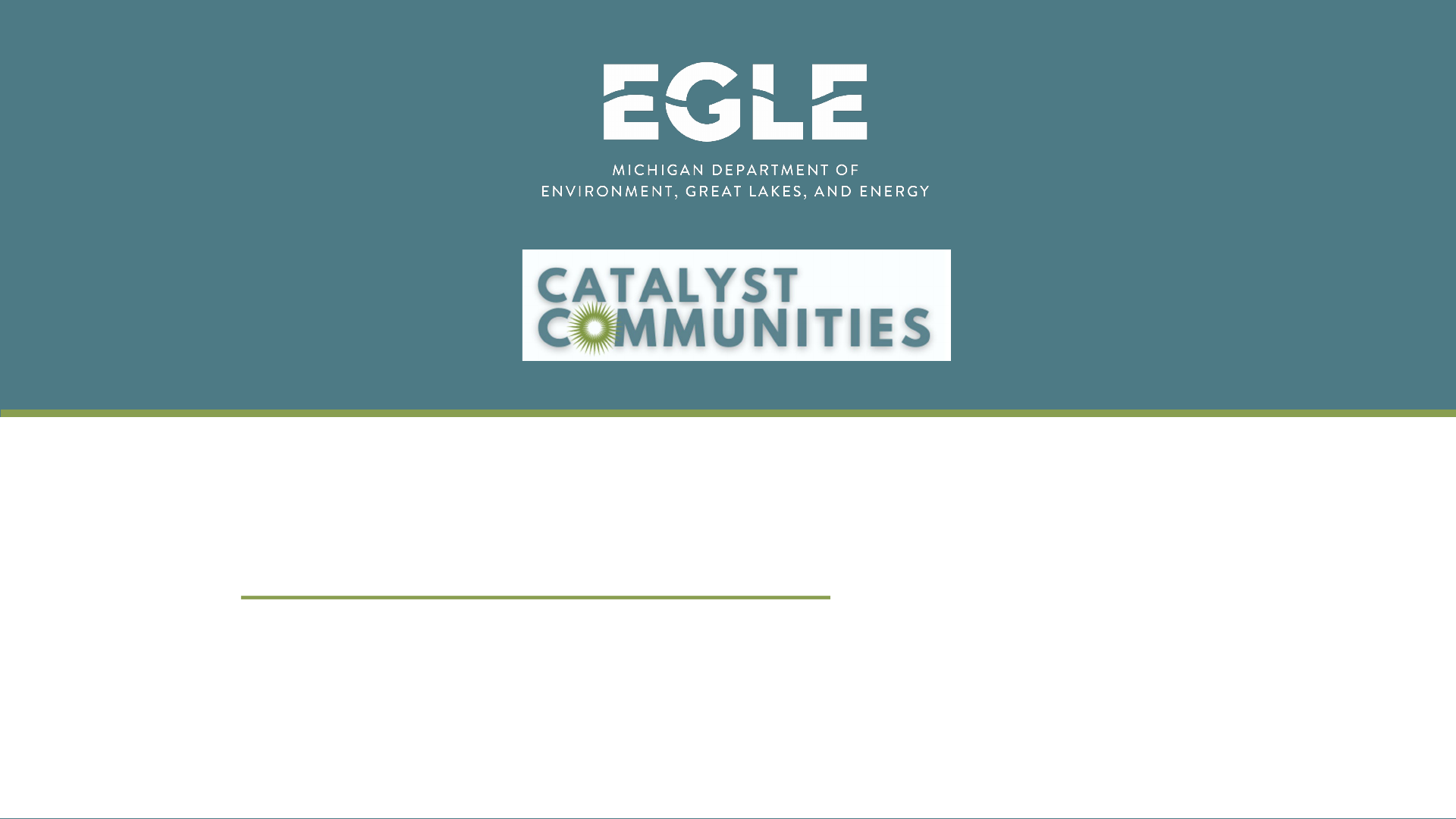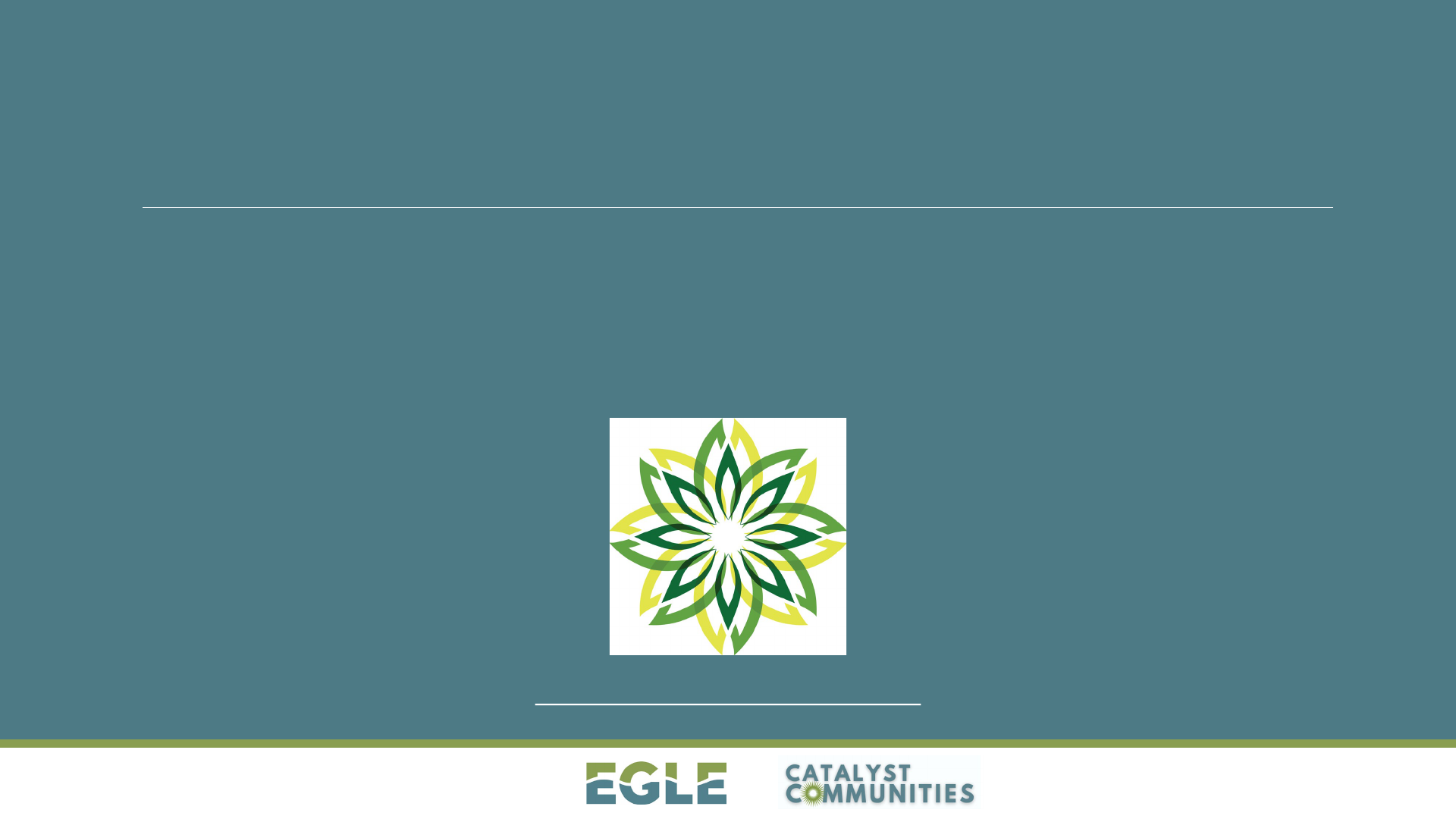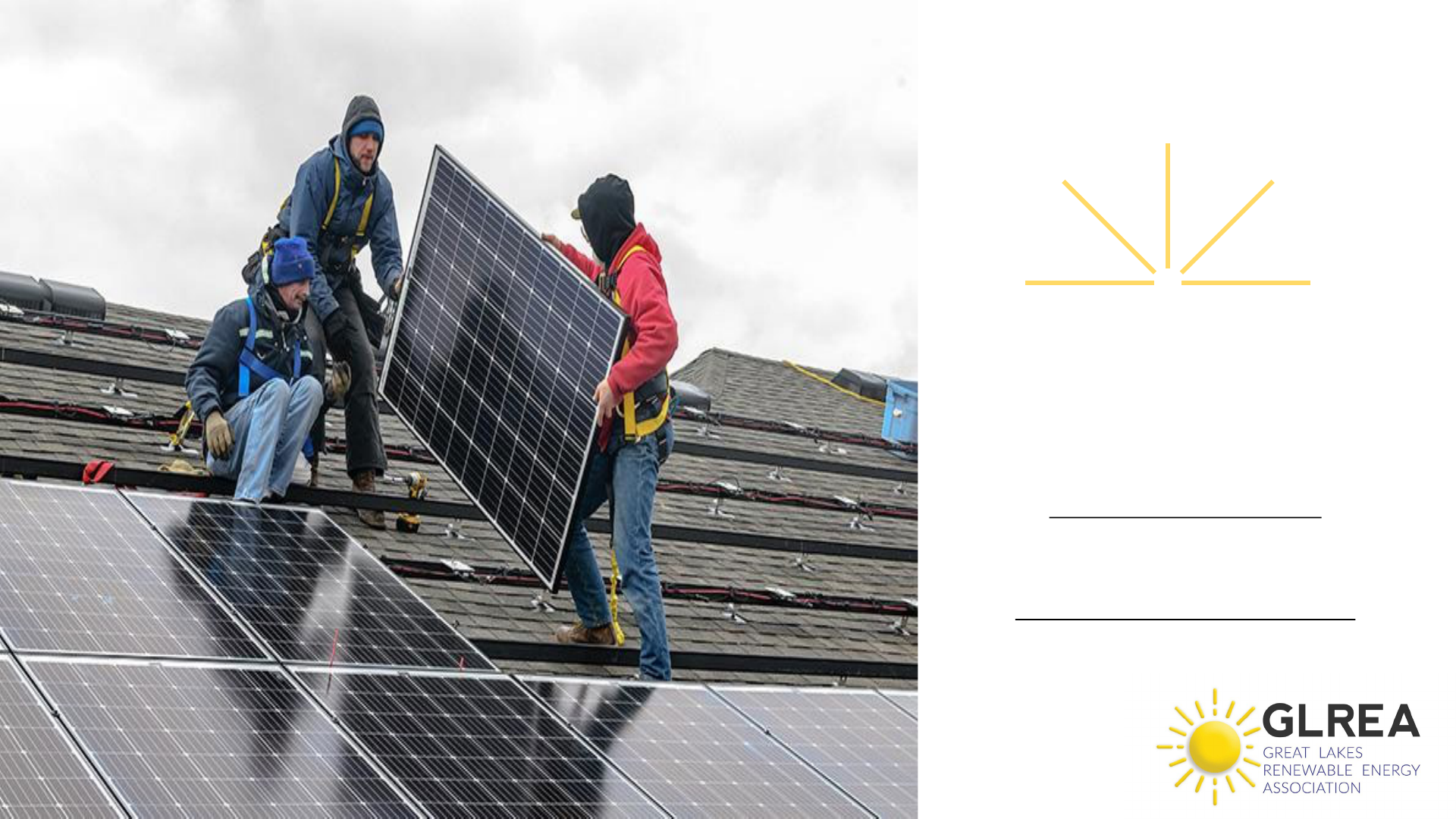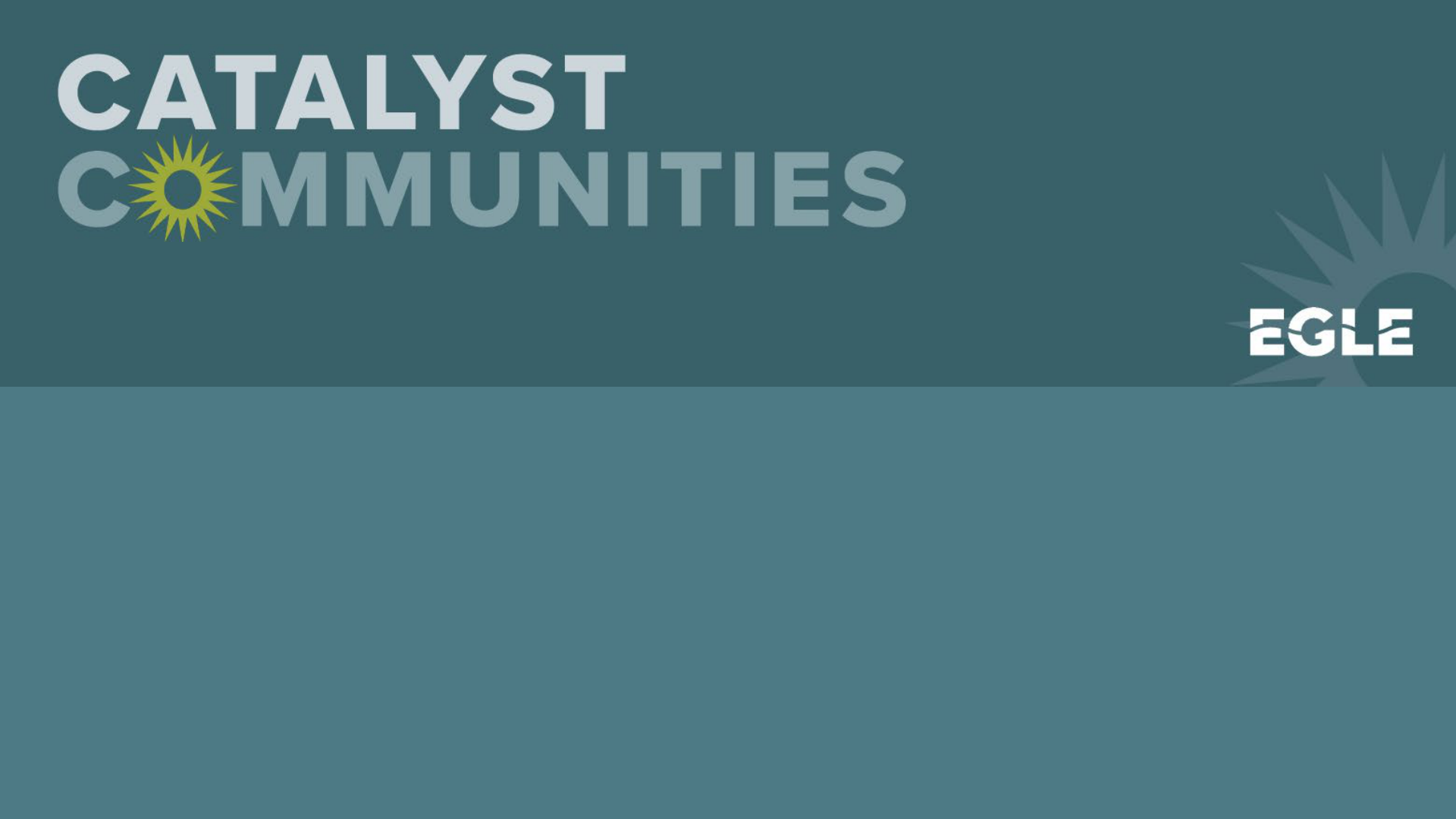
MI Solar Communities: Utilization of
Geothermal and Other Resources
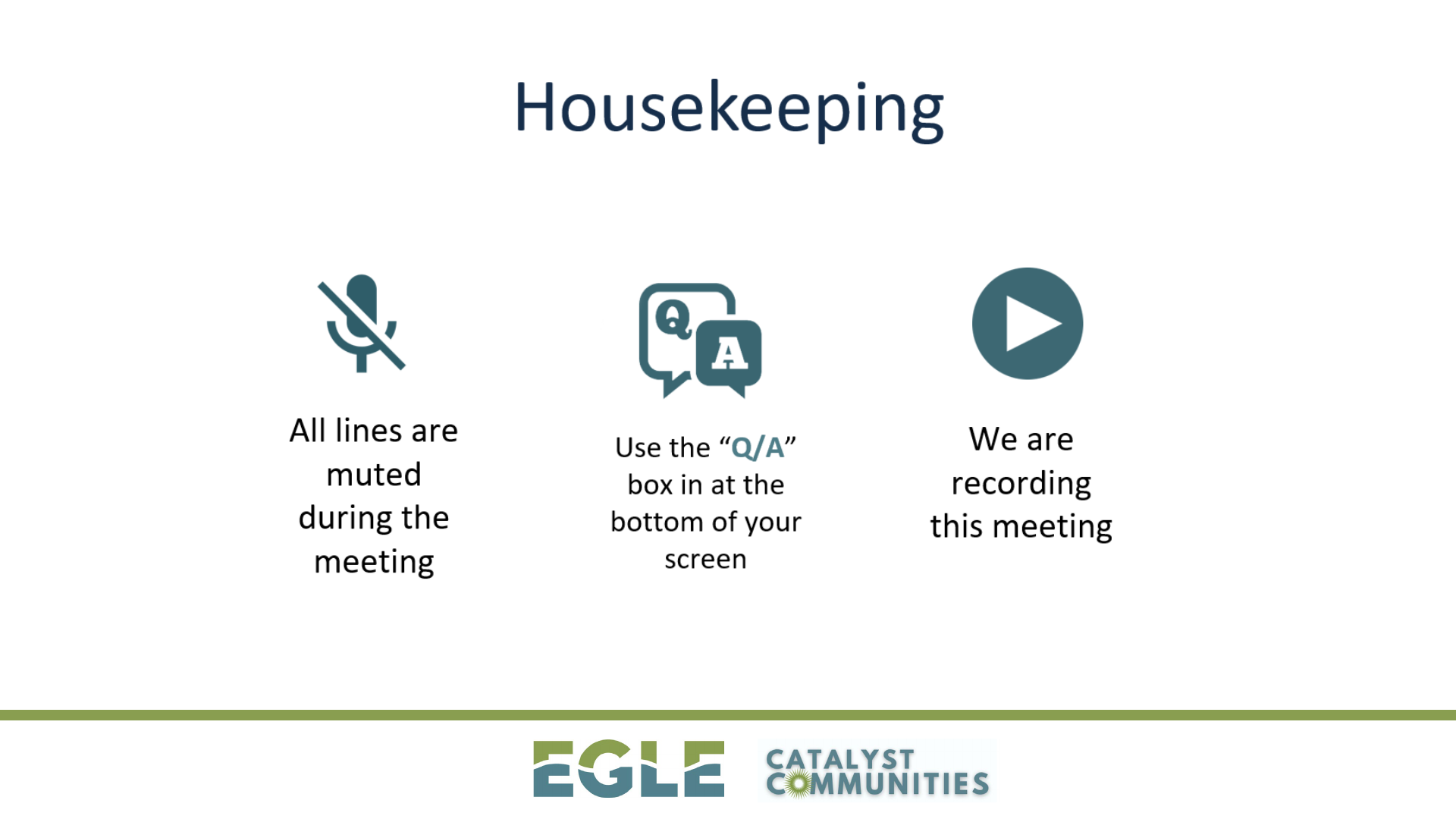

Today’s Speakers
• John Freeman, Executive Director, GLREA
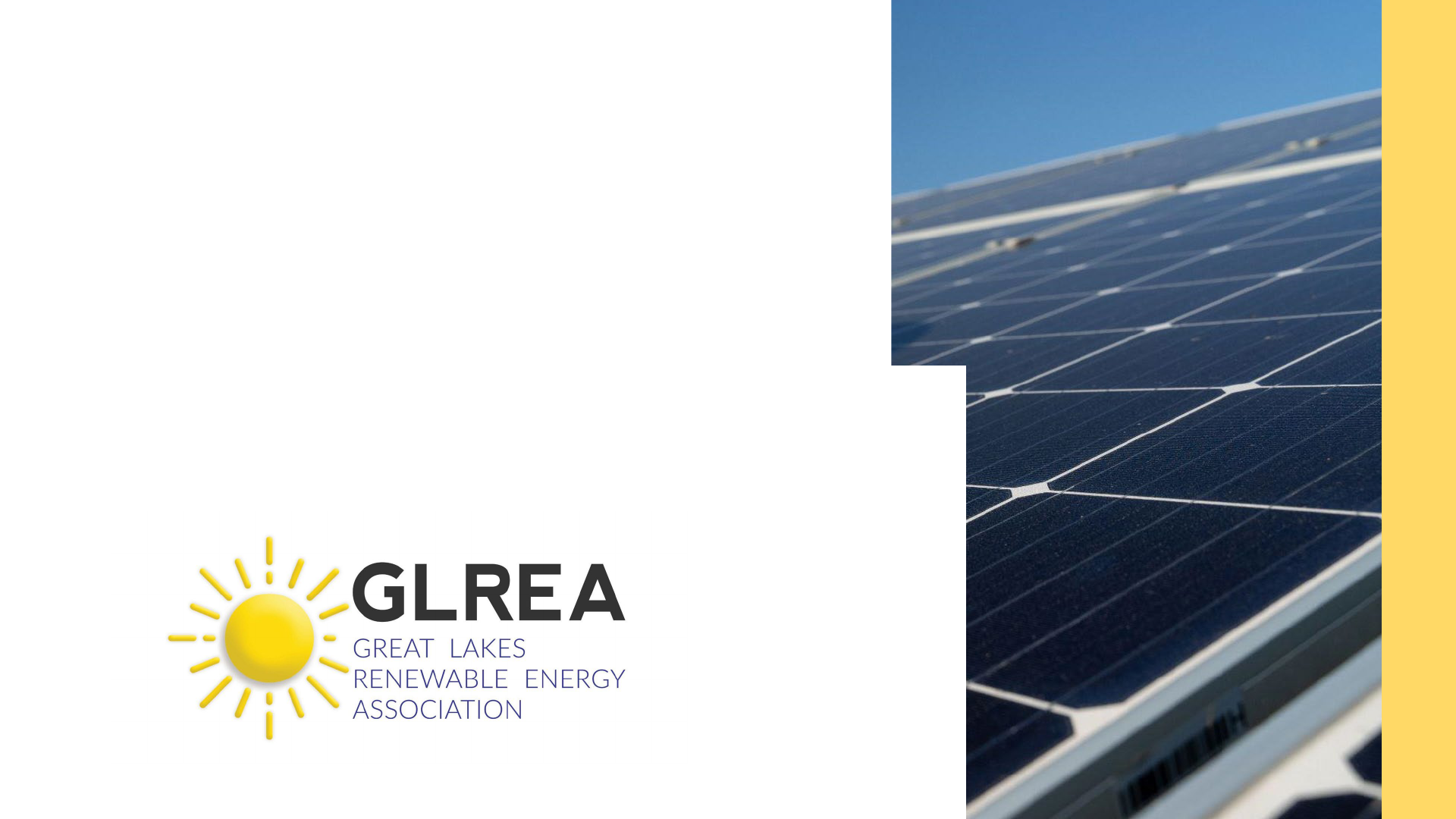
Michigan Solar
Communities
Guidebook
December 4, 2023
Geothermal Energy and Resources to
Support Local Communities

GLREA
The Great Lakes Renewable Energy Association (GLREA) is a non-
profit organization of solar energy advocates who support the
expansion and adoption of renewable energy in Michigan.
● GLREA’s mission is to educate and enable homeowners,
farmers, and businesses to save money and protect our
environment by installing a renewable energy system and to
establish policies that support the expansion of renewable
energy in Michigan.
● Become a member or learn more by visiting GLREA.org

Michigan Solar Communities Guidebook
● A Practical Guide for Local Units of Government and Renewable Energy Advocates
○ Purpose: To help Local Units of Government, Organizations and Individuals learn
about solar and geothermal energy, and be able to support the deployment of it.
○ Recognition:
○ The transition from fossil fuels to renewable energy is underway. There is the
need of having a Guidebook so people can learn about it, quickly.
○ Many Local Units of Government are developing ‘Sustainability Plans’ and
renewable energy plays a critical role in the implementation of these plans.
○ GLREA and the State of Michigan want to help Local Units of Government
support and deploy renewable energy.

Table of Contents
● Introduction: A Practical Guide to Solar in Michigan
● Chapter I: The Deployment of Renewable Energy in Michigan
● Chapter II: Community Solar in Michigan
● Chapter III: Community Solar Case Studies
● Chapter IV: GLREA Solarize Michigan
● Chapter V: Solar and Geothermal Energy – Return on Investment
● Chapter VI: Utilizing Other Sources of Renewable Energy
● Chapter VII: Resources to Support Local Communities
● Appendix I: Glossary of Terms
● Appendix II: Michigan’s Renewable Energy Policy Framework
● Appendix III: Buy Michigan Preference
● Appendix IV: Community Solar Publications and Resources
● Appendix V: Michigan Renewable Energy Certificate System
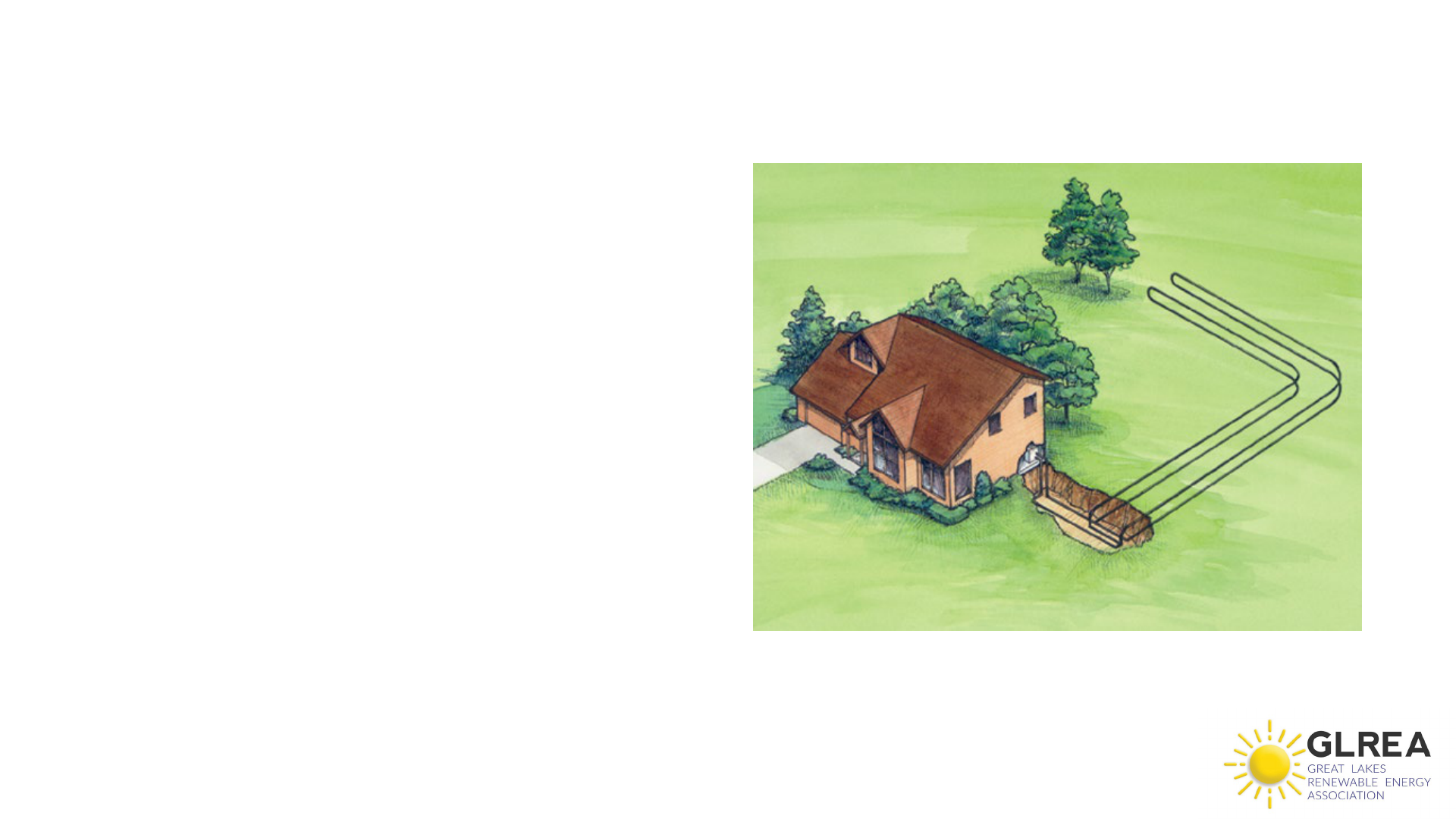
Geothermal Energy
What is Geothermal Energy:
● Is utilizing the heat from the Earth to heat
or cool a home or building.
● The temperature of the Earth 30 feet
down is relatively consistent between 50
and 59 degrees Fahrenheit.
● Thus soil temps are warmer than air in the
winter and cooler than air in the summer.
● During the winter, the Earth serves as a
heat source. In summer it serves as a heat
sink.
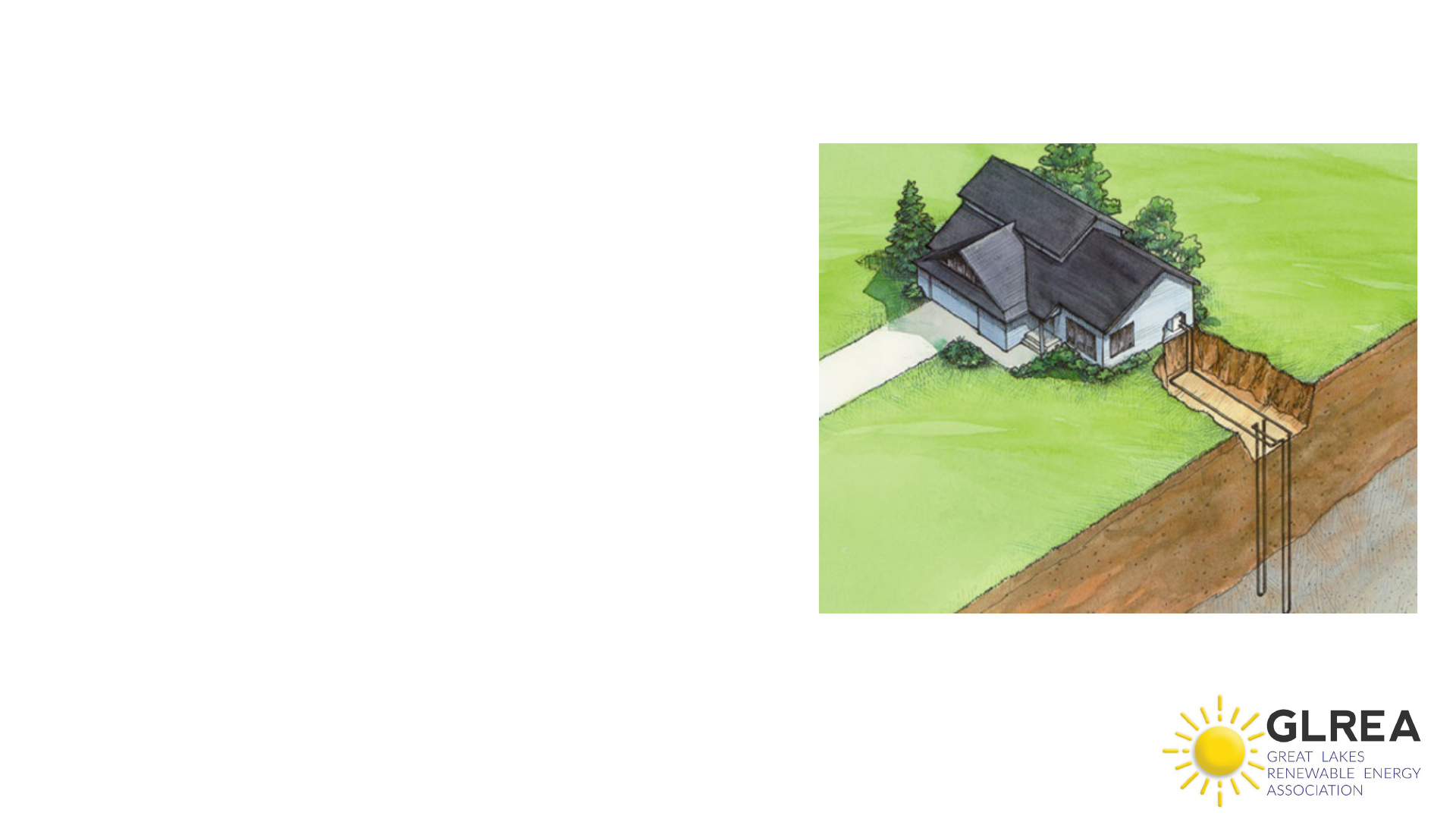
How Does a Geothermal
System Work
Ground Heat Exchanger: a series of closed loop pipes
buried in the ground with fluid, water/antifreeze 5%
running thru them to transfer the heat.
● This can be horizontal or vertical loop pipes.
Ground Source Heat Pump: transfers the heat from the
pipes to the energy Delivery System.
● During the winter it delivers heat. During the
summer, heat pumps works in reverse like an air
conditioner.
Delivery System: consists of ductwork for forced air
heating or in floor piping for radiant heating.
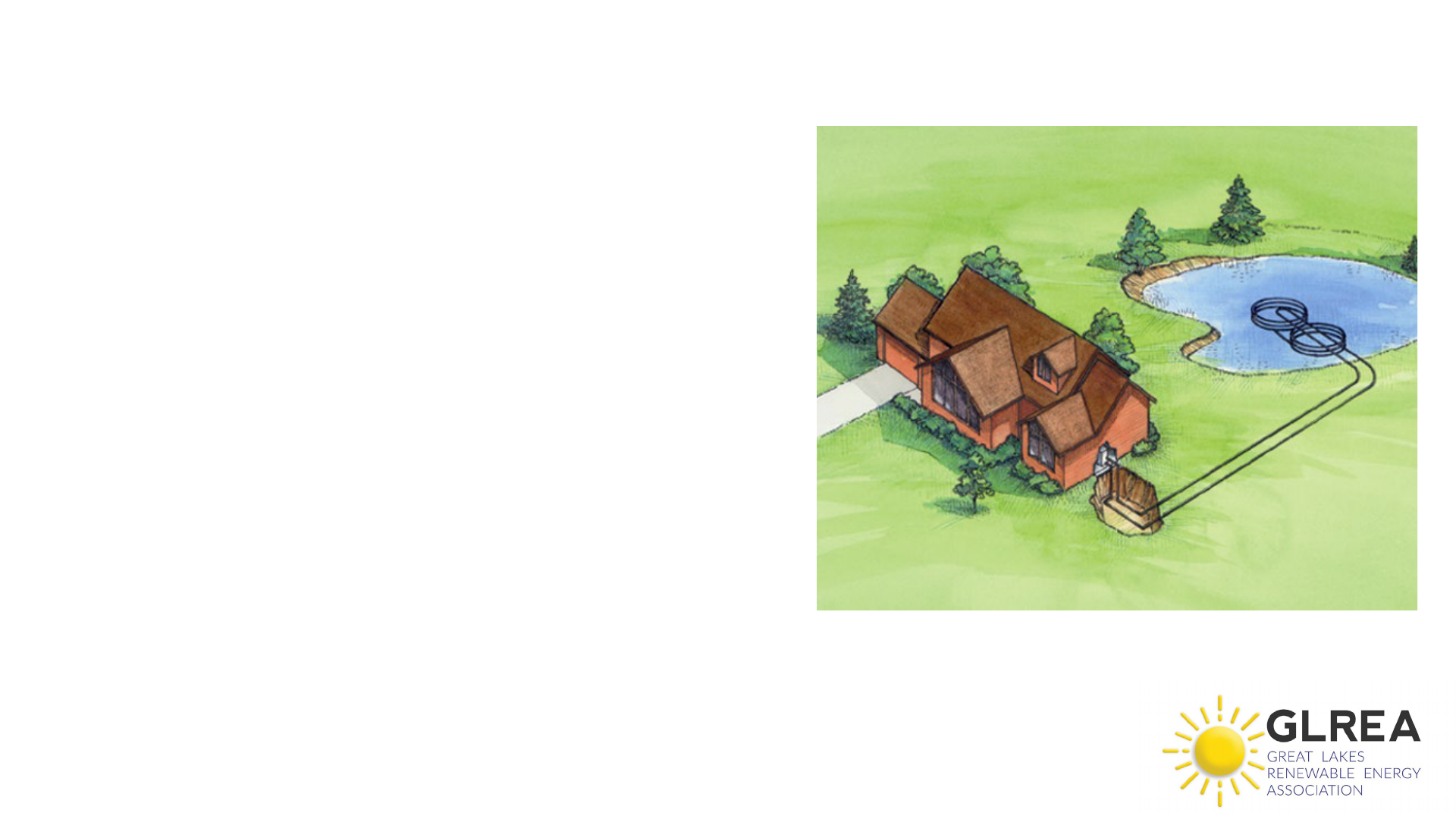
Benefits of Geothermal Energy
Reliability: since geothermal energy comes from a
constant energy source, it eliminates the spikes of
solar, wind or price of propane. Heat pump lasts 20
years or more and pipes 25-50 years. Gas and oil
furnace last around 15 years.
Safe and Environmentally Conscious: ground source
heat pump are safer, cause no open flames and no risk
of gas leaks or explosions. Since Heat pump more
efficient and no carbon fuel involved, t/f smaller carbon
footprint.
Efficiency: geothermal energy and heat pumps more
efficient than traditional heating and cooling systems,
provide quiet zero emission heating and cooling with
high reliability and long system life.

Challenges to Geothermal Energy
Economics: geothermal has a high upfront cost but will lead to energy savings over the life
of the system.
● Price of system will vary depending on size of system and needs of home or business.
● 30% Federal Investment Tax Credit is available. And other tax incentives.
● Utilities do offer rebate programs to encourage the purchase of them.
● Community Geothermal, where a series of homes all connected to larger piping system,
can bring down the cost.
Drilling Concerns: because drilling is used to install the pipes, care must be taken to do the
drilling properly.
• Need land for horizontal pipes, so may be a challenge for smaller lots in cities, but can
do vertical loops on smaller lot e.g. underneath a drive way in Ann Arbor.
Michigan State Capital: large system built. 224 loops were drilled , 500 feet underneath the
surface. Cost $70 million, but saving $300,000 a year on heating and cooling.

Solar and Energy Efficiency
Energy Efficiency (EE): using less energy to
perform the same task or produce the same result.
● EE homes use less energy to heat or cool or run
appliances.
● EE manufacturing use less energy to produce
goods.
● EE is an easy and cost effective way to reduce
energy costs, reduce carbon pollution and fight
Climate Change.

Energy Efficiency - Support
Efforts to support EE:
● State of Michigan supports local community initiatives.
● Utilities support energy efficiency efforts.
● 2030 Districts support efforts of reducing energy, water and transportation emissions.
● Michigan Saves: provides lower costing financing for energy efficient projects.
● Property Assessed Clean Energy Program (PACE) is another financial tool for business to
finance energy efficiency upgrades. Since loan is attached to the property, risk is reduced
and interest rate is t/f lower.
● Federal Inflation Reduction Act provides tax incentives to make upgrades.
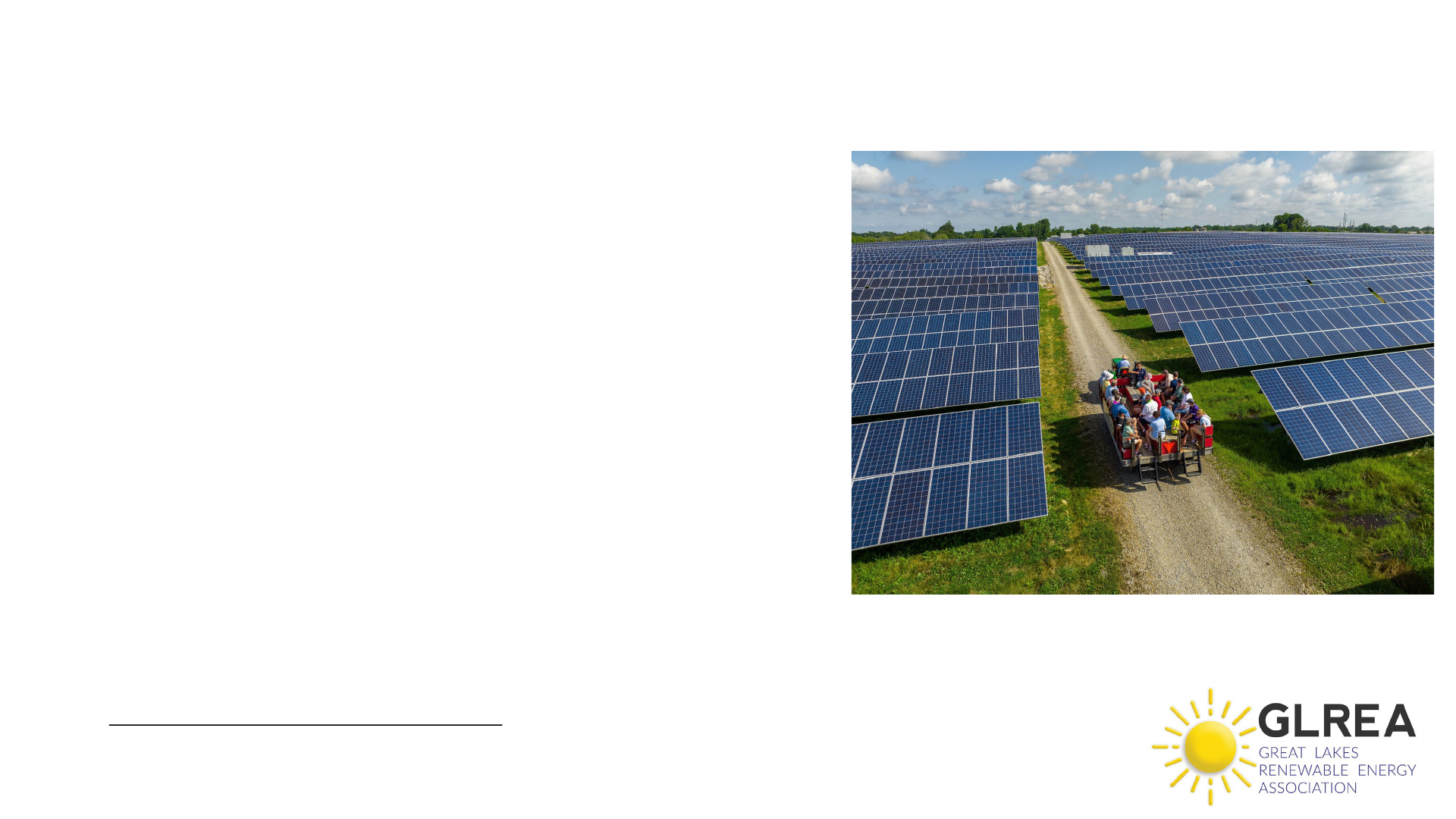
Resources to Support Local Communities
● SolSmart and SolarAPP+
● Rural Energy for America Program: US Dept of Ag provides
grant funding up to 40% cost of system and guaranteed loan
funding to farmers & small business for solar and EE
improvements. Most be rural districts with 50,000 people or
less.
● National Community Solar Partnership: sponsored by Dept of
Energy and Office of Solar Energy Technologies, provides
information and guidance on community solar. (But we need to
establish Community Solar law in MI).
● Justice 40 Initiative: requires that 40% of overall benefits of
many fed programs flow to disadvantaged communities.
● Local Solar Zoning and Planning Guidance: A guidebook called
Planning and Zoning for Solar Energy Systems: A guide for
Michigan Local Governments developed by Prof Sarah Mills U of M
and MSU to help local government.
www.
Extension.msu.edu/solarzoning
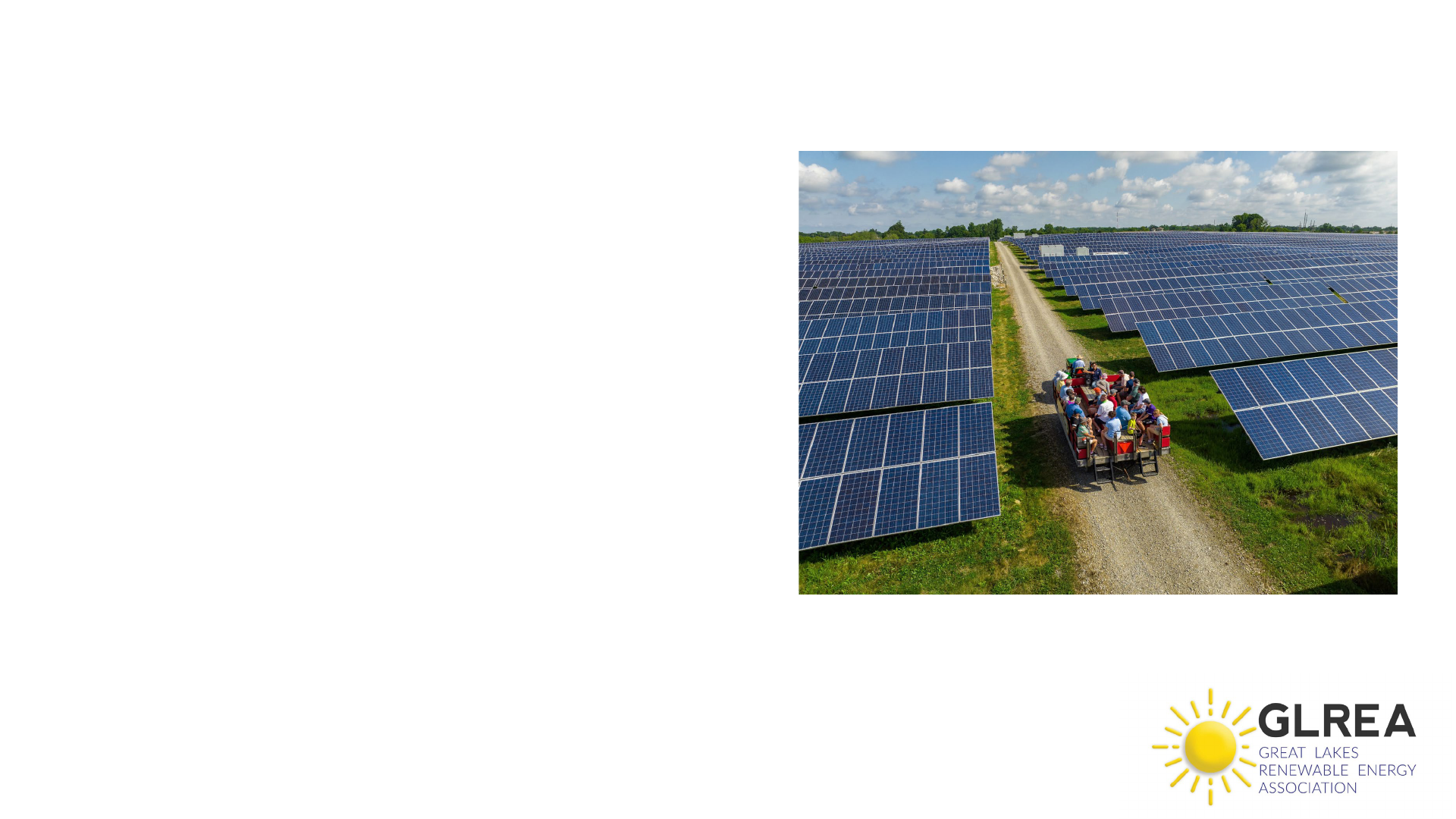
Appendices
● Glossary of Terms – I
● Renewable Energy Policy Framework – II
● Supporting MI Business – III
● Community Solar Resources – IV
● Carbon Trading – MI Renewable Energy
Certificate System (RECs) – V

QUESTIONS?
